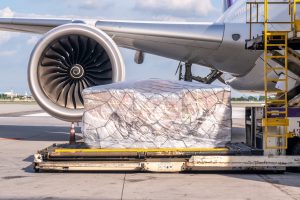Understanding Air Freight Customs
Air freight customs entails those procedures necessary to ensure that goods being shipped from one country to another comply with all relevant customs regulations. This includes providing the proper documentation, declaring the value of the shipment, and paying any duties or taxes that are owed.
Special Considerations in Air Freight Customs
Customs clearance is a critical step where goods are inspected and approved by customs authorities. It involves verifying all documentation, ensuring that the shipment complies with regulations, and determining any applicable duties and taxes.
Different countries have varying duty and tax rates, which are calculated based on the product’s value, origin, and classification under the Harmonized System (HS) code. Accurate classification is crucial to avoid overpayment or penalties.
There are some goods that are restricted or prohibited from shipping via air due to safety, health, or environmental concerns. This includes hazardous materials, certain pharmaceuticals, and items of cultural significance.
Security regulations have heightened post-9/11 which has led to more meticulous screening processes for air freight. Shipments undergo thorough checks to prevent illegal activities such as smuggling or terrorism.
Essential Documents
Whether shipping domestically or internationally, moving cargo requires important paperwork that confirms compliance with customs regulations and international trade laws. Required documents include:
Commercial Invoice
This document serves as proof of sale. It contains details of the buyer and seller, as well as the consignee (to whom and where the shipment will be delivered). It also includes the terms of sale, a description of the goods, and their value. This value is used to determine customs duties (aka customs tax).
Air Waybill (AWB)
The AWB serves as a contract of carriage between the shipper and the carrier. It includes information about the shipper, consignee, flight details, and a description of the goods.
Packing List
This list provides a description of the goods being shipped and how they are packaged (skid, crate, etc.) It also identifies the shipper and consignee. This information is essential to customs authorities who inspect and verify cargo to be shipped.
Certificate of Origin
This document certifies the country where the goods were manufactured. It is necessary for determining duty rates and compliance with trade agreements.
Import/Export Licenses
Certain goods require special licenses to be exported or imported. These licenses ensure compliance with international trade regulations and control measures.
International vs Domestic Air Freight
International and domestic air freight are similar in the fact that both transport goods via airplane. Each also follows strict safety and handling regulations and requires logistical coordination between multiple groups.
Their differences, however, are found primarily within regulatory requirements and logistical complexity. For example, international shipments must comply with customs regulations of both the origin and destination countries. Domestic shipments remain in one single country, therefore there is only one set of customs regulations to follow.
International shipments may pass through multiple countries. To ensure the integrity and security of goods throughout the transportation process, precise handling and storage procedures must be coordinated.
Transit times are understandably longer for international air freight. Shipping costs are also higher compared to domestic air freight. These increased costs are due to factors such as fuel prices, security measures, and handling fees at international airports.
International air freight involves cross-border transportation, which means cultural and language differences are to be expected. Miscommunication can lead to delays, errors in documentation, and increased costs.
Your Air Freight Specialists
If you’re in need of air freight expertise, look no further than Grand Aire. We have been a leading provider of domestic and international air freight delivery services for over 35 years. We are IATA certified and hold an IAC Certification.
Our on-site Logistics Specialists are available 24/7/365 to locate and secure the optimal air freight solutions available. Let us put our experience to work for you. Contact us at 1-800-70-GRAND or email our team directly at logistics@grandaire.com
